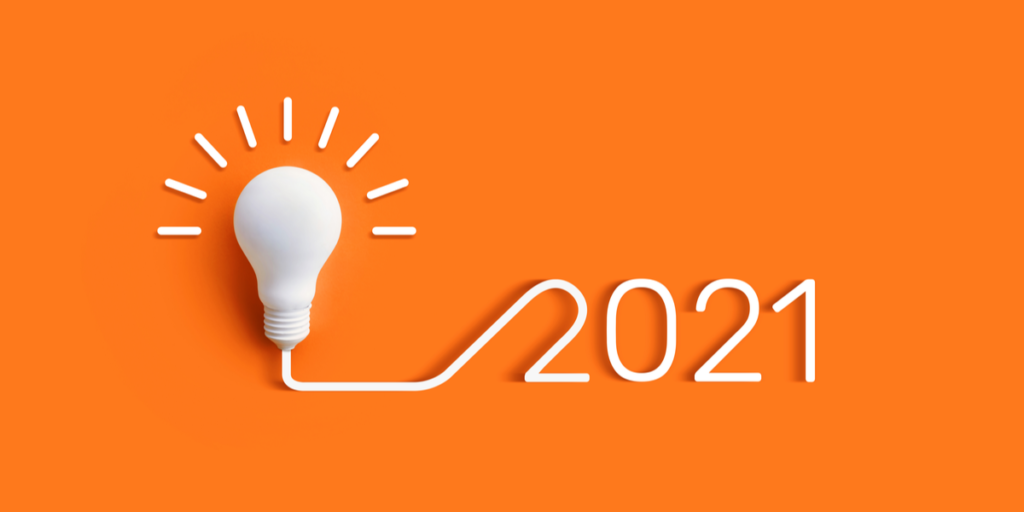Digital evolution has seen a steady progression towards online shopping over the last 10 years. Covid has changed the world, and consumers are forever changed as a result. Innovative brands are emerging in strong positions for the future with everything resting on their digital and analytical capabilities. For those that invested and adapted, the pandemic has been a catalyst for immense digital acceleration and eCommerce capabilities have reached new heights.
With 2020 rapidly drawing to a close, we look forward to 2021 with our predictions of what trends to expect in retail and eCommerce in the coming year.
Different approaches
Inclusive Capitalism – Shifts in consumer attitudes are driving the industry to reshape how it operates, with less emphasis on bricks and mortar stores and the hard sell and more on value-led experiences and social interactions.
Retailers are responding to the conscious consumer who cares about reducing waste and innovative products that aren’t harmful to the planet. Expect to see the term “inclusive capitalism” come up in 2021.
ReCommerce – It’s not obvious how second-hand commerce, reselling and rentals will overcome the challenges of the virus but demand in this market is growing. Millennials are particularly passionate about sustainable fashion. Some brand are starting their own reselling marketplace. Expect thrift to be even more fashionable in 2021.
Buying British – The huge push we are seeing to support our local economies will not just be over the festive season. This megatrend will have a longer lifespan as the pandemic has brought with it a huge rise in national pride when it comes to getting their local brands through the pandemic. Consumers see a real value in establishing relationships with local brands. Scurri’s recent survey showed as many as 59% of UK shoppers are consciously seeking out British brands to bolster the UK economy and support local businesses after the economic impact of COVID-19.

Different experiences
More retailers than ever have turned to virtual experiences in 2020 to keep shoppers engaged in place of bricks and mortar shops.
Shoppers are increasingly seeking personal and unique experiences, the brands that are innovating and developing technology that facilitates new types of online purchasing will be the ones ahead of the game in 2021.
Virtual Goods – L’Oréal Paris is a great example of a company already pushing the boundaries in this area, the brand recently launched its first line of virtual makeup products, helping create looks that can only be worn online. The concept of digital fashion is also emerging, i.e. virtual clothing for your digital wardrobe! This is truly embracing our new digital lifestyles and onscreen lives.
Video Commerce – This concept allows viewers of an ad or a TV show to purchase an item they see on-screen. For instance, you fall in love with a jacket an actor is wearing on a show you’re streaming, you can then click and purchase the jacket via an app. Shoppable TV will merge viewing and purchasing into one.
Personalisation is far from a new trend but it seems the events of 2020 have meant that retailers are fully embracing this now and pushing for new ways to make shopping online highly personal. Not just from recommendations and dynamic content but also offering personalised products, like customizing your Nike shoes.
Research shows browsing and searches for “personalized Christmas gift ideas” increased 46% compared to last year. People are seeking unique offerings and experiences, particularly during restrictions due to covid. We think 2021 will see more collaborations between brands to create personalised products experiential shopping will become a goal for more retailers.
Off the high street
M-Commerce or “Couch Commerce” will continue to rise. 43% of our online activities will be carried out on our mobile devices next year. Over the 2020 Christmas shopping season, it’s estimated that U.S. consumers will spend 1 billion hours on mobile shopping!
Shopping apps – As consumers continue to shop from their mobile devices, we expect to see more brands launch their own shopping apps with a view to reducing any friction while shopping and moving away from browser-based mobile checkouts.
High Tech Fulfillment
Smoother logistics – Retailers everywhere will focus their investments on speedier and more flexible logistics next year. A huge lesson learned by retailers this year has been to diversify their logistics processes and providers to ensure that products reach consumers without delays. This could mean smoother deliveries and fewer delays.
Embracing retail-tech to reduce the complexity of delivery has paid dividends to the retailer that invested in this year.
2021 will see increased use automation and technology to increase delivery speeds, efficiencies and cost savings.

AUTHOR
Laura Roche Marketing Executive, Scurri
Laura Roche is a Marketing Executive at Scurri, managing social media and content marketing. Laura shares breaking news in the eCommerce space with our readers as well as sharing insights across the delivery and logistics landscape.
